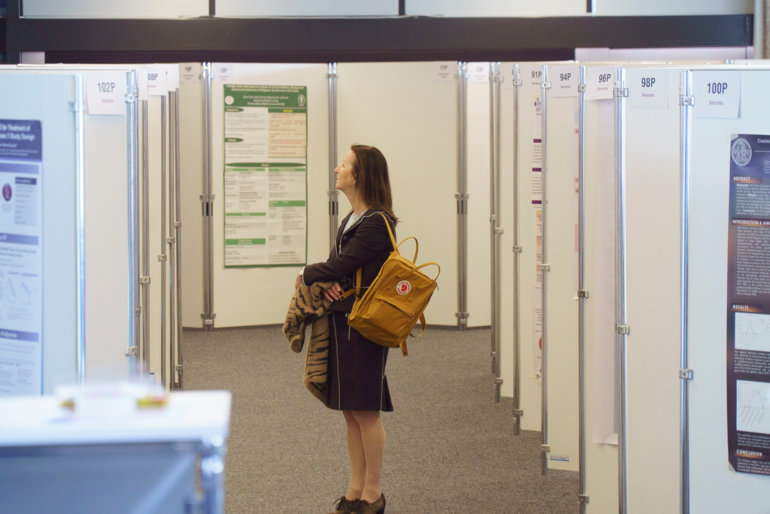Delays and poor patient journey are reported in resource-constrained countries, while awareness campaigns and healthcare service reorganisation have improved rare cancer management in more developed areas
Today, the route to diagnosis and specialist treatment for people with sarcomas still varies between countries, with more limited delays in accessing high quality care in developed areas compared to resource-constrained ones. This picture is exemplified by data from different countries presented at the ESMO Sarcoma and Rare Cancers Congress 2023 (Lugano, 20–22 March) suggesting that much needs to be done to address inequities worldwide.
In a first poster presentation, data from the QUEST cohort study looked at the journey to diagnosis of over 550 adult patients with sarcoma from the Netherlands and the UK (Abstract 60P). The study showed that the most common time interval between patients noticing the start of symptoms and seeing a doctor was 2–4 weeks (19.4% of patients in the Netherlands and 20.8% in the UK). Of note, the time between visiting the GP with the symptoms and referral to hospital (primary care interval) was significantly longer in the UK than in the Netherlands (p=0.004). Altogether, 18.2% of patients in the Netherlands had a primary care interval of less than 1 week, while 18.8% of patients in the UK had a primary care interval of 2–4 weeks. The most common time intervals at subsequent stages of the diagnosis pathway were similar between countries, being 1–3 months for the secondary care interval (21.3% in the Netherlands and 16.7% in the UK) and less than 1 week for the tertiary care interval: 37.6% in the Netherlands and 40.0% in the UK).
“These data provide an important snapshot of sarcoma awareness in developed countries with well-organised, good healthcare systems,” says Dr Pawel Sobczuk from the Maria Skłodowska-Curie National Research Institute of Oncology, Warsaw, Poland. “The primary care interval of 2–4 weeks seen in the UK cohort is actually within the range of what might be expected from developed countries. Given the lack of knowledge about sarcomas among GPs, the referral delay at this stage is perhaps not unexpected. The results also reveal a delay in patients consulting their doctor about signs and symptoms. Put together, these findings support the growing evidence that developed countries have done a good job of educating healthcare workers about sarcomas at the secondary and tertiary levels, but that much more needs to be done to increase understanding and awareness at the primary care level and among the general population.”
A different patient journey was presented in a poster using data from a self-administered questionnaire involving 153 Moroccan oncologists and orthopaedic traumatologists managing around 1–5 sarcoma cases per month (Abstract 91P). Respondents revealed problems including treatment by non-specialist surgeons (50.3%), delays in obtaining imaging appointments (commonly beyond 1 month), lack of specialised pathologist input (60.8%), non-participation of the practitioner in multidisciplinary team meetings (over 50.0%) and difficulties in providing the best treatment options (92.2%). Sobczuk thinks that some of these problems can be helped with collaboration. “For example, a lack of relevant pathology expertise could be addressed by input from specialist reference centres in more developed countries or, increasingly, by artificial intelligence methodology. In addition, education of physicians can be achieved by collaboration with colleagues from more developed countries and international networks, such as the Trans-Atlantic Retroperitoneal Sarcoma Working Group. Oncology societies could also help to support resource-constrained countries by raising awareness of management recommendations, such as those outlined in the European Sarcoma Policy Checklist (BMC Cancer. 2018;18:424).”
Similar issues were described in a study of sarcoma diagnosis and management during the COVID-19 pandemic in a high-volume sarcoma reference centre in Poland (Abstract 67P). Data showed that fewer patients treated during the pandemic (2020–2022, n=110) had limb-sparing surgery compared with those treated in the three years pre-pandemic (2016–2019, n=192) (68.2% versus 83.3%; p=0.004). Among patients in the pandemic group with high-grade malignancies, tumours were generally larger (p=0.034) and limb-sparing surgery rates were even lower (54.0% vs 78.0%; p=0.001). “These results support findings of another, smaller Polish study in patients with sarcomas (Cancers (Basel). 2022;14:6037), and confirm that delays to appropriate healthcare will inevitably result in patients being diagnosed at a later stage of disease when treatment is more difficult and the prognosis is poor,” says Sobczuk. “We must learn from these findings and make sure that access to high-quality care remains a priority during any future largescale disruptions to healthcare systems.”
Abstracts discussed:
Holthuis E, et al. The diagnostic pathway of sarcoma patients: Results from the QUEST study in the Netherlands and the United Kingdom: A cohort study. ESMO Sarcoma and Rare Cancers Congress 2023, Abstract 60P
Poster Display Session, 21.03.2023, h. 12:10 – 13:10, Foyer (Ground floor)
Kharmoum S, et al. Management challenges of extremity sarcomas in under-resourced settings: The first survey-based study in Morocco. ESMO Sarcoma and Rare Cancers Congress 2023, Abstract 91P
Poster Display Session, 21.03.2023, h. 12:10 – 13:10, Foyer (Ground floor)
Teterycz P, et al. Detrimental effect of the COVID-19 pandemic on patients with adult extremity bone sarcoma: Reference center experience. ESMO Sarcoma and Rare Cancers Congress 2023, Abstract 67P
Poster Display Session, 21.03.2023, h. 12:10 – 13:10, Foyer (Ground floor)

